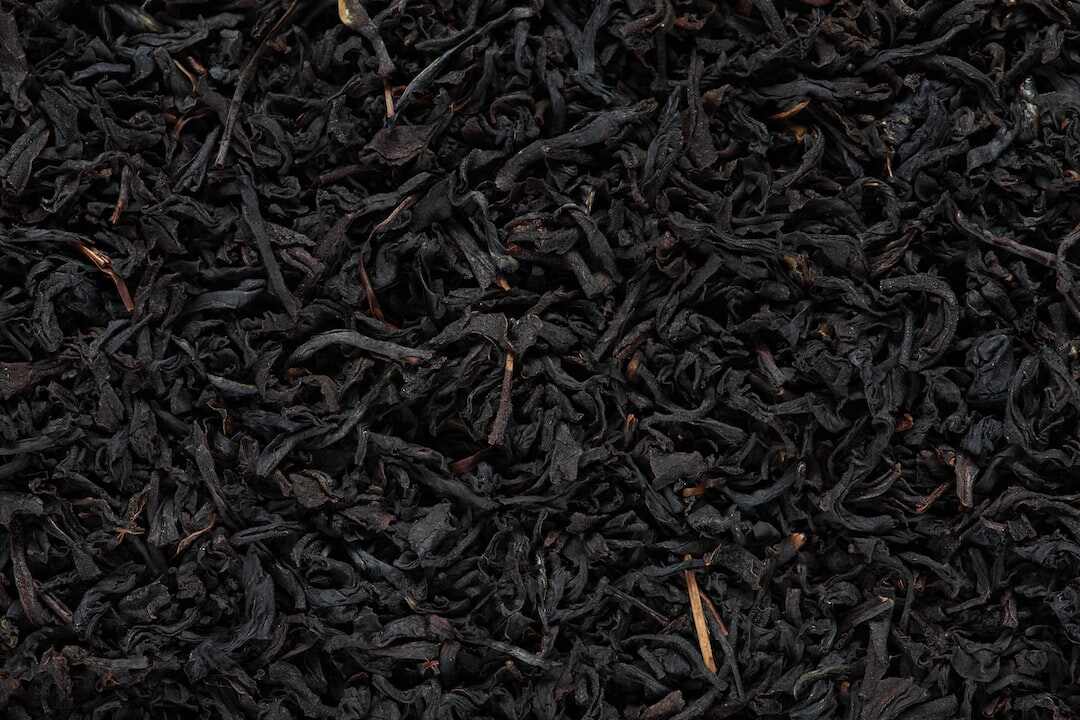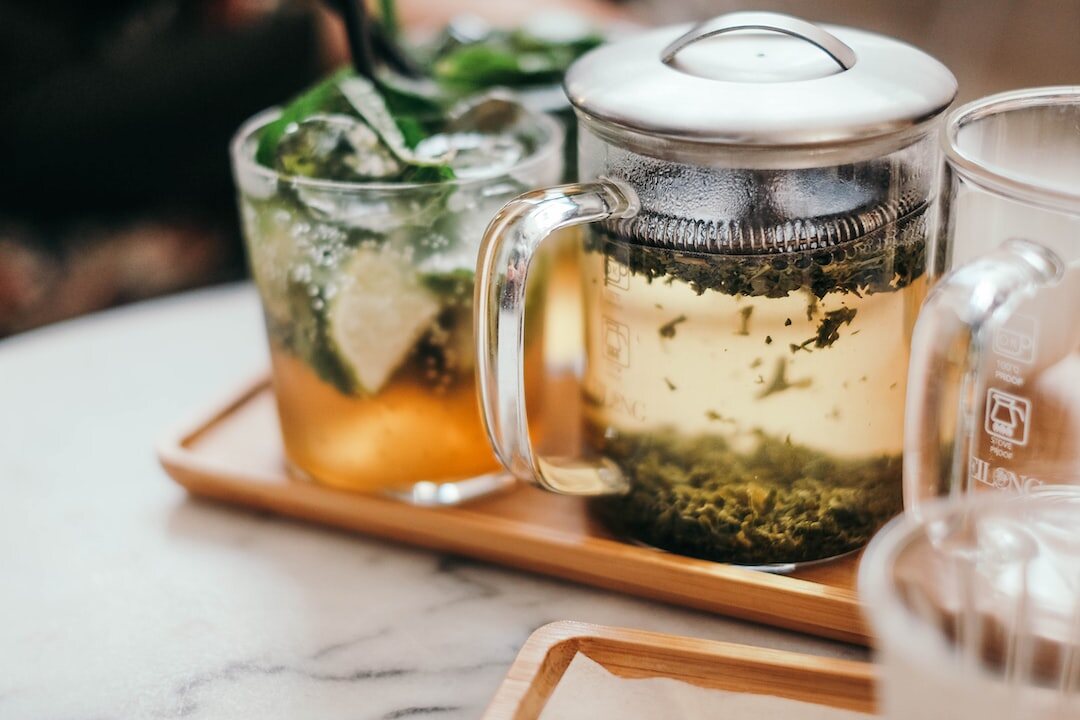Why Oolong Tea is the Liver’s Best Friend
Tea lovers, rejoice! Oolong tea, a type of tea that falls between black and green tea in terms of oxidation levels, has been gaining attention for its many health benefits, particularly its liver-protective effects. So, what is it about oolong tea that makes it so beneficial for the liver?
Rich in Antioxidants
Oolong tea is rich in antioxidants called polyphenols, which have been found to have liver-protective effects. These antioxidants can help reduce liver inflammation and oxidative stress, which are major contributors to liver disease. In fact, studies have shown that oolong tea can help improve liver function and reduce the risk of liver cancer.
Caffeine and Theanine
In addition to polyphenols, oolong tea also contains caffeine and theanine. These two compounds work together to improve liver function and reduce the risk of liver cancer. Caffeine has been shown to help reduce liver fat and improve liver function, while theanine has been found to have liver-protective effects.
Preventing Liver Damage
Drinking oolong tea regularly may also help prevent liver damage caused by alcohol consumption. Alcohol consumption can cause liver inflammation and oxidative stress, leading to liver disease. However, studies have shown that oolong tea can help reduce these effects, protecting the liver from damage.
Regulating Blood Sugar Levels
Another benefit of oolong tea is its ability to regulate blood sugar levels. High blood sugar levels can damage the liver over time, making it important for people with diabetes to keep their blood sugar levels under control. Drinking oolong tea regularly may help regulate blood sugar levels, reducing the risk of liver damage.
Conclusion
Oolong tea may just be the liver’s best friend. Its many health benefits, particularly its liver-protective effects, make it a great choice for anyone looking to improve their liver health. So, the next time you’re looking for a hot beverage to enjoy, consider reaching for a cup of oolong tea.
How Oolong Tea Can Improve Your Liver Health
If you’re looking for a natural way to support your liver health, consider adding oolong tea to your diet. Oolong tea is a traditional Chinese tea that has gained popularity in recent years due to its numerous health benefits. In this post, we’ll explore how oolong tea can improve your liver health and reduce the risk of liver disease.
Antioxidants in Oolong Tea
Oolong tea is packed with antioxidants, particularly catechins and polyphenols. These compounds help protect liver cells from damage caused by free radicals and toxins. Free radicals are unstable molecules that can cause oxidative stress and damage to cells, leading to inflammation and disease. By consuming oolong tea, you can help prevent liver damage and improve liver function.
Reducing the Risk of Liver Disease
Studies have shown that oolong tea can reduce the risk of liver disease and improve liver function by lowering the levels of liver enzymes such as alanine aminotransferase (ALT) and aspartate aminotransferase (AST). High levels of these enzymes indicate liver damage or inflammation. By drinking oolong tea regularly, you can reduce the risk of liver disease and improve liver function.
Promoting Weight Loss
Oolong tea is also known for its ability to promote weight loss and reduce body fat. This can be especially beneficial for those with fatty liver disease and non-alcoholic steatohepatitis (NASH), which are conditions associated with obesity and insulin resistance. By promoting weight loss, oolong tea can improve liver health and reduce the risk of liver disease.
Stimulating the Liver
The caffeine content in oolong tea can stimulate the liver and improve bile flow. Bile is a fluid produced by the liver that aids in digestion and detoxification processes. By improving bile flow, oolong tea can help the liver remove toxins and waste products from the body more efficiently.

Traditional Chinese Medicine
Finally, oolong tea has been traditionally used in Chinese medicine to treat liver disorders such as hepatitis and cirrhosis. Modern research has supported its effectiveness in improving liver health, making it a valuable addition to any liver-supportive regimen.
Conclusion
Oolong tea is a delicious and healthy beverage that can improve liver health and reduce the risk of liver disease. With its high antioxidant content, ability to promote weight loss, and stimulating effects on the liver, oolong tea is a must-try for anyone looking to support their liver health naturally.
| Benefits of Oolong Tea for Liver Health | |
|---|---|
| High in antioxidants | Protect liver cells from damage caused by free radicals and toxins |
| Reduces the risk of liver disease | Improves liver function by lowering levels of liver enzymes |
| Promotes weight loss | Reduces body fat and improves liver health |
| Stimulates the liver | Improves bile flow and aids in digestion and detoxification |
| Traditional Chinese medicine | Effective in treating liver disorders such as hepatitis and cirrhosis |
The Ultimate Guide to Oolong Tea and Liver Health
If you’re looking for a delicious way to support your liver health, oolong tea might just be the answer. This traditional Chinese tea is known for its unique flavor and potential health benefits, especially when it comes to liver health.
The Antioxidant Power of Oolong Tea
One of the key reasons why oolong tea is so beneficial for the liver is because of its high antioxidant content. Antioxidants are compounds that neutralize harmful molecules called free radicals, which can cause damage to cells and organs throughout the body.
In particular, oolong tea contains two types of antioxidants that are especially beneficial for liver health: catechins and theaflavins. These compounds have been shown to protect the liver from oxidative stress and inflammation, two major factors that can contribute to liver damage and disease.
Preventing Fatty Liver Disease
Another important way that oolong tea supports liver health is by preventing the development of fatty liver disease. This condition occurs when excess fat accumulates in the liver, leading to inflammation and other health problems.
Studies have found that regular consumption of oolong tea can help prevent the buildup of fat in the liver, potentially reducing the risk of fatty liver disease and related complications.
The Right Way to Enjoy Oolong Tea for Liver Health
To get the full liver health benefits of oolong tea, it’s important to prepare it in the right way. Here are some tips:
- Use loose-leaf tea instead of tea bags for the best flavor and health benefits.
- Steep the tea in hot water for 2-3 minutes to allow the antioxidants to fully infuse into the water.
- Avoid adding sweeteners or dairy products to the tea, as these can detract from its health benefits.
How Much Oolong Tea Should You Drink?
To support liver health, it’s recommended to drink 2-3 cups of oolong tea per day. This will provide your liver with the necessary antioxidants and nutrients to maintain optimal health.
Of course, it’s important to remember that oolong tea should be part of a healthy lifestyle that includes exercise and a balanced diet. By incorporating these habits into your routine, you can support your liver health and overall well-being.
Conclusion
Oolong tea is a delicious and easy way to support liver health. With its high antioxidant content and ability to prevent fatty liver disease, this tea is a great addition to any healthy lifestyle.
By following the tips above and incorporating oolong tea into your daily routine, you can give your liver the support it needs to function at its best. So why not give it a try and see how oolong tea can benefit your health?
The Benefits of Oolong Tea and Other Liver-Friendly Teas
Our liver is one of the most important organs in our body, responsible for filtering toxins and waste products from our blood. It’s no surprise that taking care of our liver is crucial for our overall health and well-being. One way to support a healthy liver is by incorporating liver-friendly teas into our daily routine, such as oolong tea, green tea, dandelion root tea, milk thistle tea, and turmeric tea.
What is Oolong Tea?
Oolong tea is a traditional Chinese tea that is partially fermented, giving it a unique flavor profile that falls between black and green tea. It’s known for its numerous health benefits and is often recommended for weight loss, reducing inflammation, and improving heart health. But did you know that oolong tea can also benefit your liver?
How Oolong Tea Can Benefit Your Liver
- Oolong tea contains antioxidants that can help protect the liver from damage caused by free radicals.
- Oolong tea has been found to help reduce the levels of liver enzymes that are often elevated in people with liver disease.
- Oolong tea is said to help reduce the risk of liver disease by promoting healthy liver function.
So, if you’re looking for a delicious and healthy way to support your liver, try adding oolong tea to your daily routine!
Other Liver-Friendly Teas
While oolong tea is a great option, there are also other teas that can benefit your liver:
| Tea | Benefits |
|---|---|
| Green Tea | Contains catechins that have been found to have a protective effect on the liver. |
| Dandelion Root Tea | Used traditionally to promote liver health and has been found to have anti-inflammatory properties. |
| Milk Thistle Tea | Contains silymarin, a compound that has been found to have protective and regenerative effects on the liver. |
| Turmeric Tea | Contains curcumin, a compound that has been found to have anti-inflammatory and antioxidant properties that can benefit the liver. |
By incorporating these liver-friendly teas into your daily routine, you can support a healthy liver and improve your overall health.
Final Thoughts
Our liver is a vital organ that plays a crucial role in our overall health. By incorporating liver-friendly teas such as oolong tea, green tea, dandelion root tea, milk thistle tea, and turmeric tea into our daily routine, we can support a healthy liver and improve our overall well-being. So, why not make a cup of your favorite liver-friendly tea today?


Leave a Reply